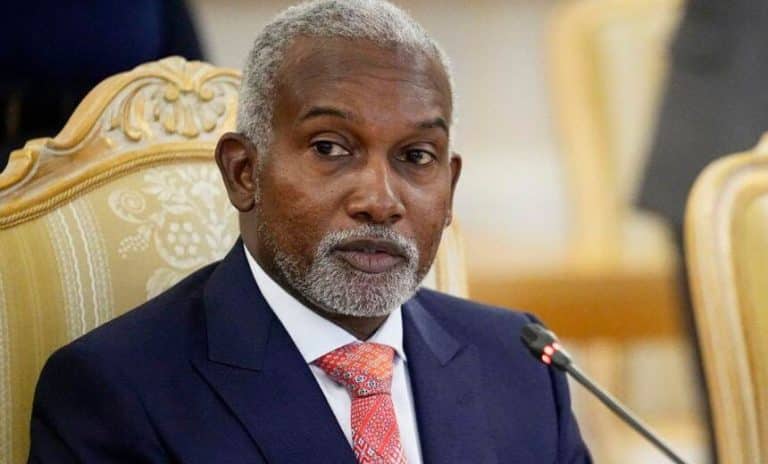A report made available to newsmen revealed that over nine hundred and seventy-one (971) Nigerians were abducted in the month of October 2024.
This update comes amid a rising security threat following the emergence of a new terrorist organization known as ‘Lakurawa’ in the northwestern region of the country.
The statistics detailed in the ‘October 2024 Nigeria Security Report’ published by Beacon Security and Intelligence Limited (BSIL), a firm specializing in security risk management and intelligence consulting, and shared with newsmen on Tuesday indicate a decline in security metrics concerning incidents, abductions, and fatalities, cautioning that the increasing figures imply that 2024 may emerge as the most challenging year for security in nearly a decade.
It elaborated that the month was predominantly characterized by violent activities, including killings and kidnappings for ransom, primarily executed by non-state armed groups (NSAGs), criminal gangs, cult organizations, and armed ethnic militias, alongside social unrest manifested through protests and labour actions driven by the severe socio-economic conditions and political dynamics in the country.
The security firm disclosed that the collected data revealed a 51% increase in fatalities and a 24.42% rise in abductions.
According to the breakdown provided by BEACON INTEL, Nigeria experienced 861 security incidents, with 64.92% (559) attributed to security threats, 24.79% (215) related to operations by security forces, and 4.99% (43) classified as safety incidents from October 1 to 31, 2024.
During this period, the country also recorded 1,545 fatalities, with 67.70% attributed to civilian deaths, 25.89% to criminals/non-state armed groups (NSAGs), and 6.40% to security forces, alongside the 971 individuals who were abducted.
In terms of geographical distribution, the North East and North West regions were the most severely impacted by security incidents, accounting for 52.03% of the total incidents, while the South East reported the least at 7.78%.
“The number of individuals abducted increased from 807 in September 2024 to 971 in October 2024, marking a 20.32% increase and a shift from the 11.03% decline recorded in September 2024.
“The North West was the hardest hit, with 83.83% of all abductions occurring in this region, while the South West region experienced the least number of abductions with 0.21%.
“Of the total number of abducted individuals, Northern Nigeria accounted for 954 (98.25%), while Southern Nigeria accounted for 17 (1.75%),” the report added.
The analysis revealed that the number of fatalities rose from 1,022 in September 2024 to 1,545 in October 2024, reflecting an increase of 51.17%.
It was noted that the North West (37.93%) and North Central (28.16%) regions experienced the highest cumulative fatalities, together representing 66.09% of the total deaths.
Conversely, the South-South region recorded the lowest fatality rate at 3.56%. Of the overall fatalities, Northern Nigeria accounted for 1,283 deaths, or 83.04%, while Southern Nigeria accounted for 262 deaths, or 16.96%.
During an interview with the Daily Post, Dr. Kabir Adamu, CEO of Beacon Security and Intelligence Limited, stated that the nation suffers from a weak and ineffective security management system.
Adamu emphasized that this inadequacy has hindered the country’s ability to tackle the underlying causes and manifestations of insecurity.
The security expert cautioned that the deteriorating security situation could lead to an increase in fatalities across Nigeria if the current trend persists.
He said: “We just published our October report. What it says is that the situation has really deteriorated, and we are a bit alarmed with the rate of deterioration.
“If it continues at this rate, perhaps what we are likely to get is more fatality in Nigeria in the last 10 months, if this trajectory that we are seeing continues.
“There are three reasons driving insecurity. The socioeconomic factor, the cost of living crisis that we are experiencing and other socio-economic issues.
“Then the political issue, for instance, the off-cycle election, and the outcome of the 2023 election.
“For the fact that some people felt aggrieved they didn’t get the justice they deserved and now kind of sabotaging the government as it were.
“The last one is the environmental factor, the climate change issue that is causing both internal and external factors in the movement of transhumans, herders, and geopolitics in the Sahel region. Such are responsible for the rise in insecurity.
“Of course, for the fact we don’t have a security management system in place to address these factors, both the drivers and the triggers, as well as the root causes, are also other factors.
“We have a very weak and ineffective security management system that has not been able to address the root causes and manifestation of insecurities in the country.
“Our criminal justice system is ineffective in that people feel that when they complain or take their case, especially to the law enforcement, they are not heard. A significant number of those people would rather pick guns to get their pound of flesh.
“It’s a failure of our security strategy. We have at least three laws in the country that are meant to prevent terrorism. Number one is the National Counter-Terrorism Strategy (NACTEST) which was passed in 2016. Policy Framework and National Action Plan for Preventing and Countering Violent Extremism (P/CVE) launched in 2017.
“Another one is the Terrorism Preventing and Prohibition Act (2022) – NCTC, which was amended in 2022. If you read them, there are at least five elements: to forestall, to secure, to identify, to prevent, and then to implement.
“First, we would have to address the current challenges in terrorism. And more importantly, we would have prevented new ones from emerging.
“Under these five elements that I mentioned, they include securing our borders; they include forming a partnership with our neighbouring countries like Niger, Chad, Benin Republic, and Cameroon. Because we did not implement it, most Nigerians are not even aware of the existence of these documents.
“The government has failed in buying the minds of Nigerians to the extent that Nigerians would be supportive of these three documents.
“And when you have a terrorism challenge, remember that there are three elements in terrorism. We have the government, the audience (Nigerians) and the perpetrators.
“Both the perpetrators and the government are speaking to the audience; where the government fails to get influence over the audience, then the perpetrators will get influence over the audience.
“Because we haven’t communicated in a strategic manner the content of these three documents, to the extent that the market woman in the place where these Lakurawa emerged does not even know which number to call or whom to approach if she sees a member of Lakurawa. That’s the failure of governance.”







